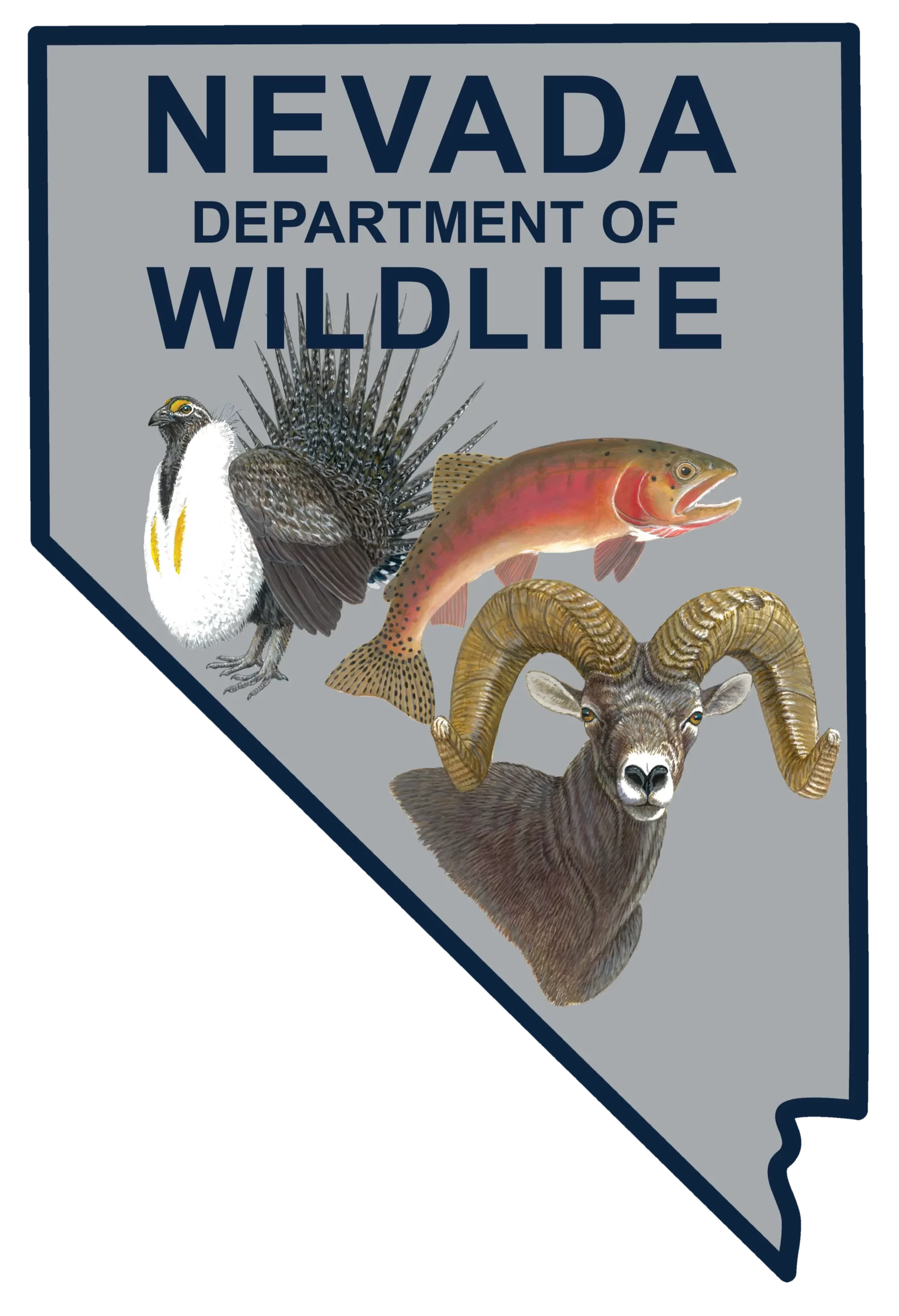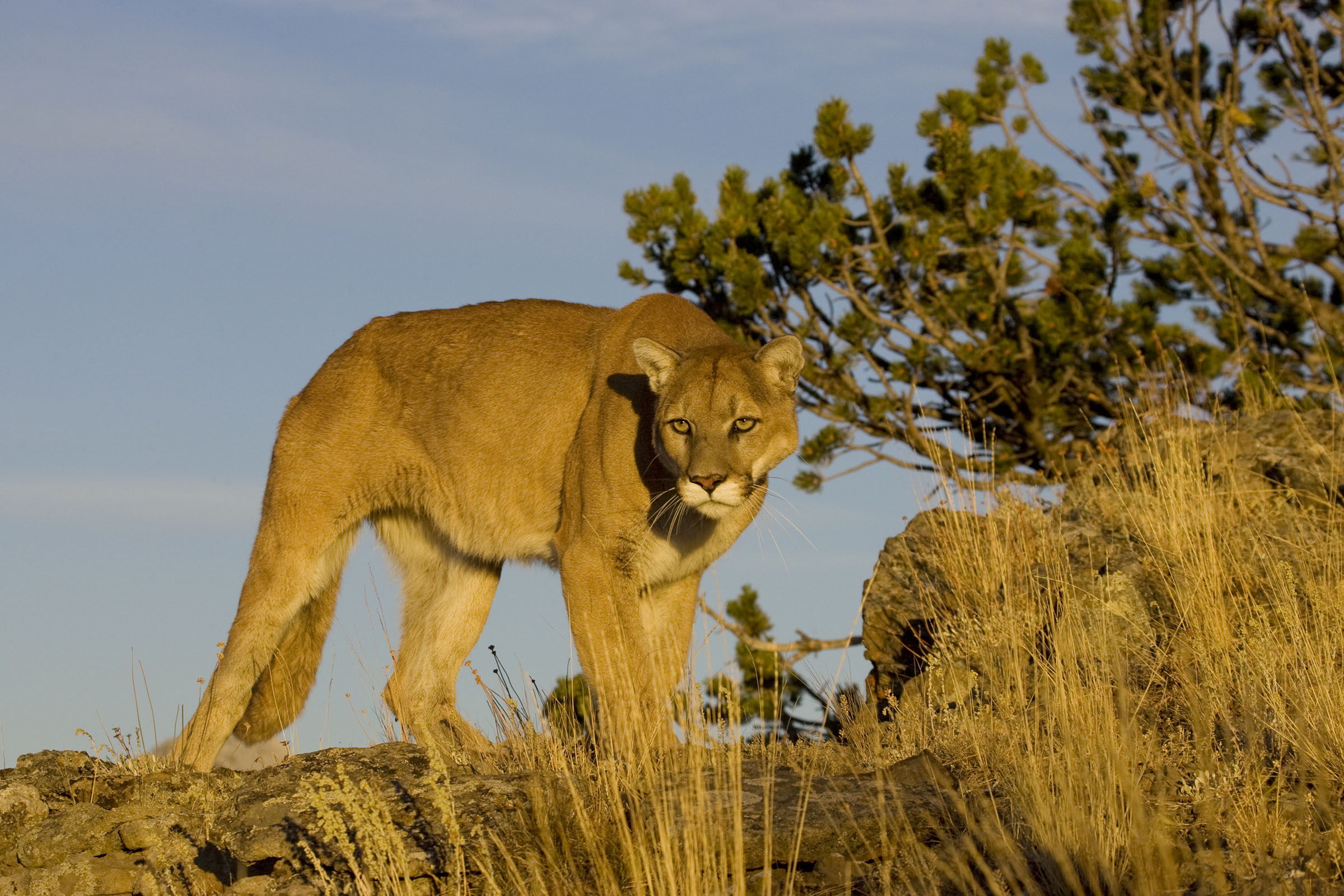Other names: cougar, panther, puma, catamount
Mountain lions occupy areas with rocky terrain throughout Nevada, especially where mule deer live. Like most wild cats, they are solitary and tend to avoid areas with human disturbance. Occasionally they will be spotted passing through the outskirts of urban areas where food is readily available. Encounters with mountain lions are rare and the risk of an attack is extremely small.
About 3-4 times the size of a bobcat, adult mountain lions weigh between 100-150 lbs. They can be distinguished by their long tail which is one-third of their total body length.
Living in mountain lion country:
You may live in or recreate in lion country. Like any wildlife, mountain lions can be dangerous. With a better understanding of mountain lions and their habitat, you can coexist with these magnificent animals. To reduce the risk of conflicts with mountain lions on or near your property, we urge you to follow these simple precautions:
- Remove anything that might attract deer or other prey animals
- This can include birdseed, pet food, trash or compost, water features, fallen fruit, excess shrubs, woodpiles, decks or other structures that can provide cover or a place to den.
- Please do not feed deer! Make efforts to discourage deer from being present in your yard – deer are one of the top food sources for mountain lions, so if they are in your yard, a lion could be too.
- Install devices to scare away the lions – motion-activated lights and/or sprinklers are a great place to start!
- Closely supervise children whenever they play outdoors. Make sure children are inside before dusk and not outside before dawn. Talk with your children about lions and teach them what to do if they encounter one.
Pet safety:
- Keep your pet under control. Roaming pets are easy prey and can attract lions. Bring pets in at night. If you leave your pet outside, keep it in a kennel with a secure top. Don’t feed pets outside; this can attract raccoons and other animals eaten by mountain lions. Store all garbage securely.
- Place livestock in enclosed sheds or barns at night. Close doors to all outside buildings since inquisitive lions may go inside for a look.
Hiking in mountain lion country:
- Stay alert when on the trails and do not wear headphones.
- Avoid hiking or jogging when mountain lions are most active – between dusk and dawn.
- Parents – supervise small children closely and teach them about lion safety.
- If you run across a dead animal, especially if it’s partially eaten and then covered with brush or dirt, move away. Lions return to their kills.
What if I see a mountain lion?
- Do not approach a lion, especially one that is feeding or with kittens. Most mountain lions will try to avoid a confrontation.
- Do NOT run away from it or corner it—give it space to leave. Back away slowly if you can do so safely – running may stimulate the ‘chase instinct’ that many predators have.
- Do all that you can to appear larger. Raise your arms. Open your jacket if you’re wearing one. If you have small children with you, protect them by picking them up so they won’t panic and run.
- If the lion is aggressive, throw stones, branches, or whatever you can get your hands on without crouching down or turning your back. Wave your arms slowly and speak firmly. What you want to do is convince the lion you are not prey and that you may be a danger to the lion.
- In the rare event of an attack—ALWAYS fight back. Lions have been driven away by prey that fights back. People have fought back with rocks, sticks, caps or jackets, garden tools, and their bare hands successfully. Remain standing or try to get back up!
Am I in danger?
Human and mountain lion conflicts are extremely rare; taking the above precautions will help limit conflicts that may arise. Learning how to interact with mountain lions is an important step in making sure Nevada and our wildlife stay wild!
If you see a mountain lion in a residential area, report it to the Nevada Department of Wildlife dispatch line at (775) 688-1331.

